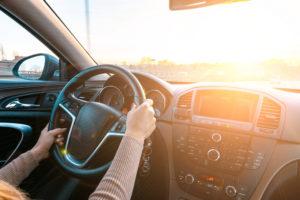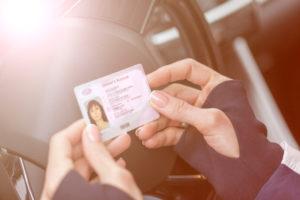
There are many reasons why a driver may not have a valid license in their possession when operating a vehicle. Maybe you left it at home; perhaps you never had one to start with. Maybe you have your license in your possession, but you have no idea your driving privilege is suspended.
If you have been in an accident without a driver’s license, you need to know that not having a license does not make you liable, and you can still be compensated if you are not at fault. Having the representation and guidance of an experienced personal injury lawyer like Morris Bart increases your chances of receiving the compensation you deserve with or without a license. Get a no-obligation, free consultation to discuss your eligibility to receive compensation.
Reasons for Not Having a License
The reason you do not have a license may not be relevant to the accident, but it could impact your ability to get compensation. These are the most common reasons for getting into an accident without a driver’s license, according to Carinsurance.com.
Forgotten at Home
Officers often understand if you have misplaced your license or left it at home. If you provide the requested information and they can access your license information via dispatch, it will probably not be a problem for you. You may be issued a ticket which can be reduced or dismissed when you appear with your license in court.
Driving Privilege Suspended
A suspension is a temporary removal of your driving privilege, and there are a wide range of reasons your privilege may be suspended. Suspension can result from driving-related issues, or it can be due to financial obligations you have failed to meet.
- Driving-related suspension – Suspension due to DUI, failure to maintain insurance coverage, reckless driving, or accumulating too many points on your license.
- Financial obligations – Suspension because of unpaid traffic tickets, child support, or accident judgments.
Reinstatement may require you to meet court-ordered requirements or wait a specified time. You can then pay a reinstatement fee and get your driver’s license back.
Driving Privilege Revoked
If your driver’s license has been revoked, your privilege has been completely taken away. You may be able to have a license again at some point, but it will involve you applying and testing for a new license when you become eligible. Revocation is imposed for serious offenses or infractions like DUI or reckless endangerment.
For a free legal consultation, call 800-537-8185
Consequences of Driving without a License
When driving without a driver’s license, the consequences will be determined by various factors, including the state you live in and the actual status of your driver’s license. Penalties are set at the state level, and the factors of your case can greatly influence them. Driving without a license is a misdemeanor charge and not a simple traffic violation in every state.
License Status does Not Determine Accident Fault
If another driver is determined to be at fault for the accident, then you are eligible to file a claim for compensation for injuries and damages suffered. Your driving without a license charge is separate and does not affect your ability to recover compensation from the at-fault driver.
Click to contact our personal injury lawyers today
When the Driver at Fault Has No License
If another driver’s negligence was to blame for the accident and the driver had no license, things could be more difficult. If the driver has no license, there is a good chance they have no insurance coverage. Insurance coverage is hard to get with no license, and if there is coverage, the driver may be excluded from the coverage if they have no valid license.
If they borrowed the vehicle and failed to tell the car owner that they had no driver’s license, then the car owner’s policy should provide coverage. Some policies exclude unlicensed drivers from coverage, so there may not be a policy to file a claim against. In this situation, you will need to file a personal injury suit against the at-fault driver for the compensation you seek.
Uninsured or Underinsured Motorist Coverage
When the at-fault driver is unlicensed, you may be able to file a claim for compensation through your insurance policy if you purchased uninsured or underinsured motorist (UM/UIM) coverage with your policy. Some states will require this coverage while others will not. The coverage protects you when the at-fault driver has no insurance or when their policy limits are too low to compensate for damages fully.
Loaning Your Vehicle to an Unlicensed Friend
If you loan your car to a friend who does not have a license, but you did not know, you should not have a problem. If you did know or should have known, in the court’s opinion, you could face charges. If an accident occurs, your insurance could be liable for the damages.
If your insurance refuses to pay because your policy excludes unlicensed drivers, you could be personally liable for the damages. Even though you were not driving and may not have even been in the car, you could be stuck paying for injuries, doctor’s bills, vehicle, and property damage. In some states, you can face charges carrying penalties of up to a year in jail and possibly have your license suspended.
Contact the Morris Bart Law Firm Today for a Free Case Consultation
Contacting the Morris Bart law firm for a free case consultation will allow you to find out if you are eligible to file a claim for compensation and your odds of being awarded compensation. Driving without a valid driver’s license makes getting compensation after an accident complicated. Having legal advice from an experienced personal injury lawyer can improve your odds of receiving proper compensation.
Questions?Call 800-537-8185
to find a Morris Bart office near you.


